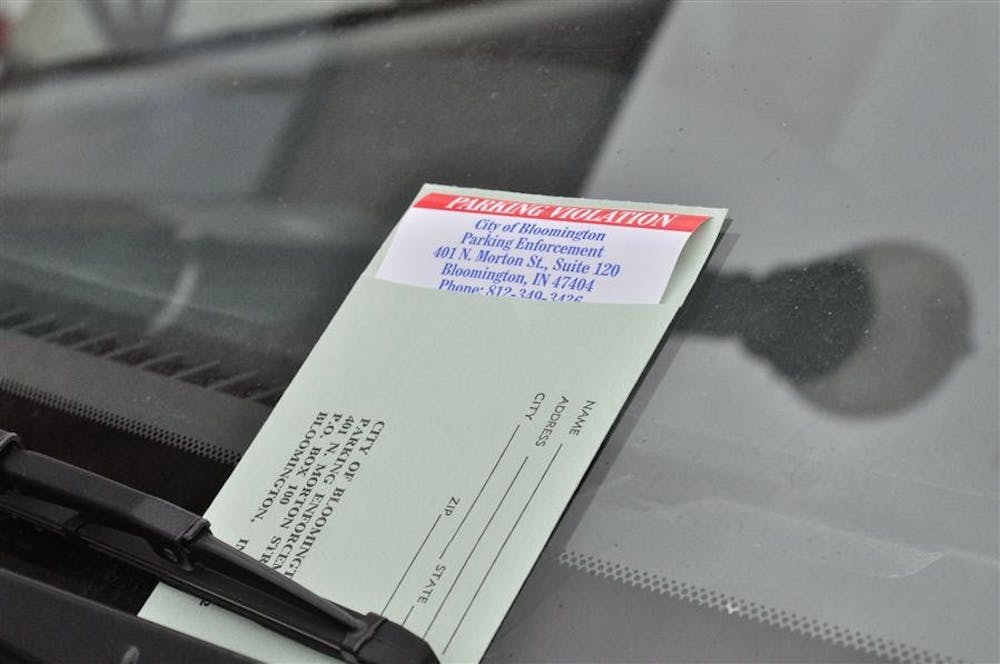IU Parking Operations, infamously known as the organization behind the unwelcome ticket envelopes on car windshields across campus, claims that, contrary to popular belief, it isn’t the bad guy.
“The enforcement side of ticketing often gets accused of picking on people,” Parking Manager Doug Porter said. “We don’t twist people’s arms to make them get tickets. They do it to themselves; they make the choice.”
These choices result in IU Parking Operations making roughly $1.6 million a year from parking tickets and more than $3 million from selling yearly permits. These proceeds fund Parking Operations, which is a self-supporting auxiliary of the University. This includes covering the business’s personal operating costs, along with parking project expenses.
“A few years ago, we paved the lot by Assembly Hall off of 17th Street and Fee Lane which cost nearly a million dollars,” Porter said. “We also pay for the building of the parking garages across campus.”
Stan Easton, the supervisor of Parking Enforcement, said about 60,000 tickets are issued each year in nearly 50 different types of violations, including those for lacking a permit, parking in the wrong zone and presenting a safety hazard, such as parking in the fire lane or taking a handicap spot.
Freshman Samantha Green, owner of a D-5 parking permit, is familiar with several of these violations.
“I have gotten five different parking tickets so far this year,” Green said. “I have a really convenient parking spot, right across from my dorm, but I just don’t think they have adequate parking spaces, and I think the fees are too high.”
Easton and Porter both explained that people may choose to ignore the tickets that are issued to them, but they can’t avoid them forever.
“If the person is connected to the University in any way, their bill will be sent to the bursar where it will be treated like any part of their bursar bill; if they don’t pay, they can’t be enrolled,” Easton said. “For cars that can’t be traced to the University, the bill is turned over to a collection agency.”
There are about 20,000 parking spots spread throughout campus and for which Parking Operations issues an equal amount of permits yearly. Despite this equal match up, however, Porter explained that Parking Operations receives regular complaints that there isn’t anywhere to park.
“The issue isn’t that there isn’t a place for someone to park; it’s that people don’t like where they have to park,” Porter said. “It’s an issue of convenience, not availability.”
IU Parking Operations: just doing their job

Get stories like this in your inbox
Subscribe





